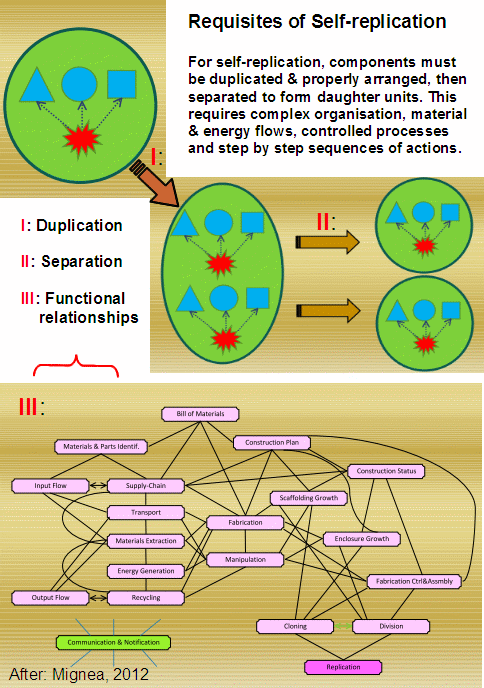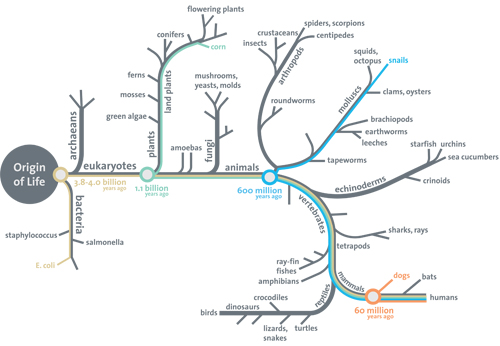
Over at the KF blog, we have recently been entertaining some ghosts from our civilisation’s past, who are concerned about its present and now sadly likely future in light of the sad history recorded in Acts 27, of a sea voyage to Rome gone disastrously wrong because the voyagers were manipulated into venturing back out at Fair Havens, when they ought to have been wintering.
That is, while democracy is obviously better than realistic alternatives, there is nothing sacred or necessarily sound and wise about majority rule (even when minorities are heard out, respected and protected — as seems increasingly to be fading away . . . ), especially when the majority view has been manipulated by agenda driven interests.
Overnight, thanks to Steve Jobs’ latest project, Heaven’s Browser, and its portal capabilities, Plato, Socrates and Aristotle popped by for a chat and a spot of tea.
Alcibiades will participate by the vision conferencing feature a bit later on, it being a bit of a problem to have got him to come over.
When Paley stepped through the portal, he was dressed as a late C18 clergyman, and was carrying a rather nice fob watch. That, I suppose, was a hint as to what he was going to discuss.
Any ways, that brought to mind the famous/notorious opening scene in his Natural Theology:
In crossing a heath, suppose I pitched my foot against a stone, and were asked how the stone came to be there, I might possibly answer, that for any thing I knew to the contrary it had lain there for ever; nor would it, perhaps, be very easy to show the absurdity of this answer.
But suppose I had found a watch upon the ground, and it should be inquired how the watch happened to be in that place, I should hardly think of the answer which I had before given, that for any thing I knew the watch might have always been there. Yet why should not this answer serve for the watch as well as for the stone ; why is it not as admissible in the second case as in the first?
For this reason, and for no other, namely, that when we come to inspect the watch we perceive—what we could not discover in the stone—that its several parts are framed and put together for a purpose, e. g. that they are so formed and adjusted as to produce motion, and that motion so regulated as to point out the hour of the day; that if the different parts had been differently shaped from what they are, or placed after any other manner or m any other order than that in which they are placed, either no motion at all would have been carried on in the machine, or none which would have answered the use that is now served by it.
My thought was, that is one of the most widely scorned passages in all literature on matters relating to design. Indeed, Wiki’s article on Intelligent Design uses an image of a fob watch to fob design thought off as patently utterly fallacious, resting on a broken analogy.
So, what is Paley going to have to say in his defence?
After some interesting discussions with Plato and Socrates, Paley’s turn came.
And this, with some short preliminaries, is what the ghost of Paley had to say:
____________
>>before we pause for a spot of tea (we have much more to address this evening), I think I should ask Mr Paley to speak in his behalf.
William Paley nodded, and thanked Plato for speaking to the cosmological issues.
He held up his fob watch, and said, let us note, the whole universe as we observe it moves with beautiful, clock-like precision, and shows every sign of being finely tempered together to form a fit habitat for life. That is, we have found our watch in a field, and we must ponder what such evident artifice points to.
I think the prophet Isaiah had something to say that we should ponder:
Isa 45:8 “Shower, O heavens, from above,
and let the clouds rain down righteousness;
let the earth open, that salvation and righteousness may bear fruit;
let the earth cause them both to sprout;
I the LORD have created it.9 “Woe to him who strives with him who formed him,
a pot among earthen pots!
Does the clay say to him who forms it, ‘What are you making?’
or ‘Your work has no handles’?
10 Woe to him who says to a father, ‘What are you begetting?’
or to a woman, ‘With what are you in labor?’”
11 Thus says the LORD,
the Holy One of Israel, and the one who formed him:
“Ask me of things to come;
will you command me concerning my children and the work of my hands?12 I made the earth
and created man on it;
it was my hands that stretched out the heavens,
and I commanded all their host . . . .18 For thus says the LORD,
who created the heavens
(he is God!),
who formed the earth and made it
(he established it;
he did not create it empty,
he formed it to be inhabited!):
“I am the LORD, and there is no other . . . [ESV]
Paley then said, the heavens declare the glory of God, and the firmament shows his handiwork. To those who will look, listen and ponder.
He continued, now, regarding the alleged disanalogy between living things and machines such as watches, I wish that my detractors and dismissers would simply read beyond Chapter 1 to Chapter 2 and acknowledge what I wrote there. For there, they would immediately find (their error is that patent):
Suppose, in the next place, that the person who found the watch should after some time discover, that in addition to all the properties which he had hitherto observed in it, it possessed the unexpected property of producing in the course of its movement another watch like itself—the thing is conceivable ; that it contained within it a mechanism, a system of parts—a mould, for instance, or a complex adjustment of lathes, files, and other tools—evidently and separately calculated for this purpose; let us inquire what effect ought such a discovery to have upon his former conclusion.
I. The first effect would be to increase his admiration of the contrivance, and his conviction of the consummate skill of the contriver. Whether he regarded the object of the contrivance, the distinct apparatus, the intricate, yet in many parts intelligible mechanism by which it was carried on, he would perceive in this new observation nothing but an additional reason for doing what he had already done— for referring the construction of the watch to design and to supreme art. If that construction witliout this property, or which is the same thing, before this property had been noticed, proved intention and art to have been employed about it, still more strong would the proof appear when he came to the knowledge of this further property, the crown and perfection of all the rest.
II. He would reflect, that though the watch before him were in some sense the maker of the watch which was fabricated in the course of its movements, yet it was in a very different sense from that in which a carpenter, for instance, is the maker of a chair—the author of its contrivance, the cause of the relation of its parts to their use. With respect to these, the first watch was no cause at all to the second: in no such sense as this was it the author of the constitution and order, either of the parts which the new watch contained, or of the parts by the aid and instrumentality of which it was produced. We might possibly say, but with great latitude of expression, that a stream of water ground corn; but no latitude of expression would allow us to say, no stretch cf conjecture could lead us to think, that the stream of water built the mill, though it were too ancient for us to know who the builder was. What the stream of water does in the affair is neither more nor less than this: by the application of an unintelligent impulse to a mechanism previously arranged, arranged independently of it and arranged by intelligence, an effect is produced, namely, the corn is ground. But the effect results from the arrangement. The force of the stream cannot be said to be the cause or the author of the effect, still less of the arrangement. Understanding and plan in the formation of the mill were not the less necessary for any share which the water has in grinding the corn; yet is this share the same as that which the watch would have contributed to the production of the new watch, upon the supposition assumed in the last section. Therefore,
III. Though it be now no longer probable that the individual watch which our observer had found was made immediately by the hand of an artificer, yet doth not this alteration in anywise affect the inference, that an artificer had been originally employed and concerned in the production. The argument from design remains as it was. Marks of design and contrivance are no more accounted for now than they were before. In the same thing, we may ask for the cause of different properties. We may ask for the cause of the color of a body, of its hardness, of its heat; and these causes may be all different. We are now asking for the cause of that subserviency to a use, that relation to an end, which we have remarked in the watch before us. No answer is given to this question, by telling us that a preceding watch produced it. There cannot be design without a designer; contrivance, without a contriver; order, without choice; arrangement, without any thing capable of arranging; subserviency and relation to a purpose, without that which could intend a purpose; means suitable to an end, and executing their office in accomplishing that end, without the end ever having been contemplated, or the means accommodated to it. Arrangement, disposition of parts, subserviency of means to an end, relation of instruments to a use, imply the presence of intelligence and mind. No one, therefore, can rationally believe that the insensible, inanimate watch, from which the watch before us issued, was the proper cause of the mechanism we so much admire m it—could be truly said to have constructed the instrument, disposed its parts, assigned their office, determined their order, action, and mutual dependency, combined their several motions into one result, and that also a result connected with the utilities of other beings. All these properties, therefore, are as much unaccounted for as they were before.
IV. Nor is any thing gained by running the difficulty farther back, that is, by supposing the watch before us to have been produced from another watch, that from a former, and so on indefinitely. Our going back ever so far brings us no nearer to the least degree of satisfaction upon the subject. Contrivance is still unaccounted for. “We still want a contriver. A designing mind is neither supplied by this supposition nor dispensed with. If the difficulty were diminished the farther we went back, by going back indefinitely we might exhaust it. And this is the only case to which this sort of reasoning applies. “Where there is a tendency, or, as we increase the number of terms, a continual approach towards a limit, there, by supposing the number of terms to be what is called infinite, we may conceive the limit to be attained ; but where there is no such tendency or approach, nothing is effected by lengthening the series. There is no difference as to the point in question, whatever there may be as to many points, between one series and another—between a series which is finite, and a series which is infinite.
A chain composed of an infinite number of links can no more support itself than a chain composed of a finite number of links. And of this we are assured, though we never can have tried the experiment; because, by increasing the number of links, from ten, for instance, to a hundred, from a hundred to a thousand, etc., we make not the smallest approach, we observe not the smallest tendency towards self support. There is no difference in this respect—yet there may be a great difference in several respects—between a chain of a greater or less length, between one chain and another, between one that is finite and one that is infinite. This very much resembles the case before us. The machine which we are inspecting demonstrates, by its construction, contrivance and design. Contrivance must have had a contriver, design a designer, whether the machine immediately proceeded from another machine or not. That circumstance alters not the case . . . [Natural Theology, Ch 2, 1806.]
With all due respect to Mr Darwin and his followers and successors, they have not answered the pivotal question.
Namely, whence cometh the contrivances of life, from the cell on up.
We know that designers can and do produce such selections and arrangements of parts conducive to specific functions, but we have no good evidence that the blind chance and mechanical necessity of physics in some warm little pond or the like, would be able to form a living cell, no matter how many eons and stages may be conceived. Mutually conflicting paper chemical models and plausible stories without actual evidence that the claimed powers of nature exist, do not do the job.
What is to be explained is a contrivance that greatly exceeds my watch.
The living cell.
The first one.
A metabolic automaton, with encapsulation, gating of proper intake and outgo. With a digital code based system for manufacturing proteins and a facility for self-replication that takes advantage of that code stored in DNA. With ever so many interacting capacities as Mr Mignea recently outlined:

That, sirs, I submit, is very clever contrivance indeed; and thus, a strong sign of supreme art.
And that, at the very root of the tree of life, so that without the root, there can be no shoot, no trunk, no major branches down to the twigs we see today and in the fossil record. As the Smithsonian Museum inadvertently implies in this diagram of the tree of life:

Again I say: no roots, no shoots, no branches and no twigs and fruit.
Origin of Life is pivotal, and it strongly points to design.
Beyond that, it is easy to show that to create the major body plans, we need 10’s to 100’s of millions of bases, thus a similar number of bits, of genetic information. That is why for a first simple cell we may see 100,000 to 500,000 DNA bases in the genome, but for everything beyond, once we get to complex body plans, we see 10’s – 100’s of millions as the reasonable threshold.
That poses an insuperable blind search for a needle in a haystack search, if we for the moment rule out intelligence, skill, knowledge and art.
That is, for just 500 yes/no decisions worth of information (think, 500 coins with Heads and Tails), 500 bits, we have about 3 * 10^150 possibilities, that is, 3 followed by 150 zeros. If the 10^57 atoms of our solar system were to work at fastest chemical reaction speed for a reasonable scientific estimate of the age of our solar system [about 4 – 6 billion years], the comparison would be to take a cubical haystack as thick as our galaxy — light would take 1,000 years to traverse it, and superpose it on the galaxy in our neighbourhood. Then, blindfold yourself and go anywhere at random and pick a sample of size equal to one straw. That is all the searching our solar system could do in the set of possibilities for 500 coins.
With all but certainty, such a “search” would come up with only the bulk of the distribution, a straw, and nothing else. But, by the very nature of artifice and contrivance, many parts must be properly picked and correctly arranged and coupled together just so, to get things to work. Haphazard arrangements are by overwhelming likelihood, going to be non functional.

We can see this by thinking of a common metaphor that used to be used at popular level to promote the notion that any contrivance we can come up with would, given enough time and resources, also be achievable by chance. Namely, a million or more monkeys at typewriters. Even for the equivalent of just 73 ASCII characters, this already fails, as we just saw. Not enough time or resources by a very long musket-shot.
Some have done the exercise by computer, and this is the result so far:
One computer program run by Dan Oliver of Scottsdale, Arizona, according to an article in The New Yorker, came up with a result on August 4, 2004: After the group had worked for 42,162,500,000 billion billion monkey-years, one of the “monkeys” typed,
“VALENTINE. Cease toIdor:eFLP0FRjWK78aXzVOwm)-‘;8.t”
The first 19 letters of this sequence can be found in “The Two Gentlemen of Verona”. Other teams have reproduced 18 characters from “Timon of Athens”, 17 from “Troilus and Cressida”, and 16 from “Richard II”.[24]
A website entitled The Monkey Shakespeare Simulator, launched on July 1, 2003, contained a Java applet that simulates a large population of monkeys typing randomly, with the stated intention of seeing how long it takes the virtual monkeys to produce a complete Shakespearean play from beginning to end. For example, it produced this partial line from Henry IV, Part 2, reporting that it took “2,737,850 million billion billion billion monkey-years” to reach 24 matching characters:
- RUMOUR. Open your ears; 9r”5j5&?OWTY Z0d…
In short, dismal and predictable failure.
If life came about by universal common descent, it is patent that the best explanation of even such is that it did so by design, not by the blind and utterly inadequate mechanisms being proposed.
Why is all of this important to rescuing a civilisation at the brink?
Because, first, there is an issue of truth and genuine knowledge at stake. Tha tis worth the effort in itself.
However, it is also the case that evolutionary materialism — which ever has the tendencies Plato pointed out — has been held to be warranted by science and to be proved thereby. Never mind the sort of ideological question-begging we saw Mr Lewontin and the NSTA exposing for all with eyes to see and ears to hear, to take note of and understand.
Prof William Provine of Cornell helps us further see why this is vital. In the 1998 University of Tennessee Darwin Day keynote, he observed
Naturalistic evolution has clear consequences that Charles Darwin understood perfectly. 1) No gods worth having exist; 2) no life after death exists; 3) no ultimate foundation for ethics exists; 4) no ultimate meaning in life exists; and 5) human free will is nonexistent . . . .
The first 4 implications are so obvious to modern naturalistic evolutionists that I will spend little time defending them. Human free will, however, is another matter. Even evolutionists have trouble swallowing that implication. I will argue that humans are locally determined systems that make choices. They have, however, no free will . . . [[Evolution: Free Will and Punishment and Meaning in Life, Second Annual Darwin Day Celebration Keynote Address, University of Tennessee, Knoxville, February 12, 1998 (abstract).]
I must thank this gentleman for his candour, however, I cannot praise him for his line of reasoning.
If we have no freedom of mind and volition, we cannot choose to follow or accept a reasonable case. This is already self-referential and self-refuting. For, rationality itself is here undermined.
Moreover, the foundation for morality is eroded, and we are left playthings of our impulses and our manipulators. All, thanks to an imposition before the actual facts are allowed to speak, under pretence of being a suitably skeptical and successful definition of science. That opens the door to nihilism and to domination by the ruthless, by manipulation at first then by naked force.
And yet, all of this pivots on a begging of the question, not on ay genuinely decisive findings of fact about the origins of life and of the cosmos that supports life.
Law professor Philip Johnson, in rebutting professor Lewontin, was apt:
For scientific materialists the materialism comes first; the science comes thereafter. [[Emphasis original] We might more accurately term them “materialists employing science.” And if materialism is true, then some materialistic theory of evolution has to be true simply as a matter of logical deduction, regardless of the evidence. That theory will necessarily be at least roughly like neo-Darwinism, in that it will have to involve some combination of random changes and law-like processes capable of producing complicated organisms that (in Dawkins’ words) “give the appearance of having been designed for a purpose.”. . . . The debate about creation and evolution is not deadlocked . . . Biblical literalism is not the issue. The issue is whether materialism and rationality are the same thing. Darwinism is based on an a priori commitment to materialism, not on a philosophically neutral assessment of the evidence. Separate the philosophy from the science, and the proud tower collapses. [[Emphasis added.] [[The Unraveling of Scientific Materialism, First Things, 77 (Nov. 1997), pp. 22 – 25.]
Paley concluded: that is obviously correct, and it marks a good point to pause and reflect as we sip.>>
____________
So, we have the ghost of William Paley speaking.
And rightly so, we must ask why it is that we hardly ev er hear of the thought exercise that begins his second chapter in discussions of his watch argument.
Is it the case that much of the exchange on this point has been about a strawman caricature all along?
We need to reflect on that.
As well as, on his words that the watch argument applies to the cosmos as a whole too, now that we have strong reason to believe it is fine tuned in such a way as facilitates Carbon Chemistry, aqueous medium cell based life. END
PS: The continuing series of ghostly visits is here:
Some ghosts from our civilisation’s past have a few words for us . . .
- “Post-birth abortion”? The ghosts of Francis Schaeffer and C Everett Koop have some choice words (and a vid series) for us
- Given developments like “post-birth abortion,” NT Apostles and friends come by for a visit and a chat –John the Baptist and Pilate open the batting
- James the Just gives a captain’s knock from James 3 on the power of the tongue
- The Belize incident, liberty & justice vs manipulative factions, Geo Washington’s farewell address, the gospel and true enlightenment
- Godel, Morison and Greenleaf, with a sidelight from Francis Schaeffer — worldview foundations for restoring our civilisation to sanity
- Plato, Socrates, Paley — and Steve Jobs’ latest project — as we learn to put first things (and first causes) first
- (WIP, more to come . . . )
PPS: In comment 2 below, I note on VJT’s spirited defence of Paley at his own reference web.